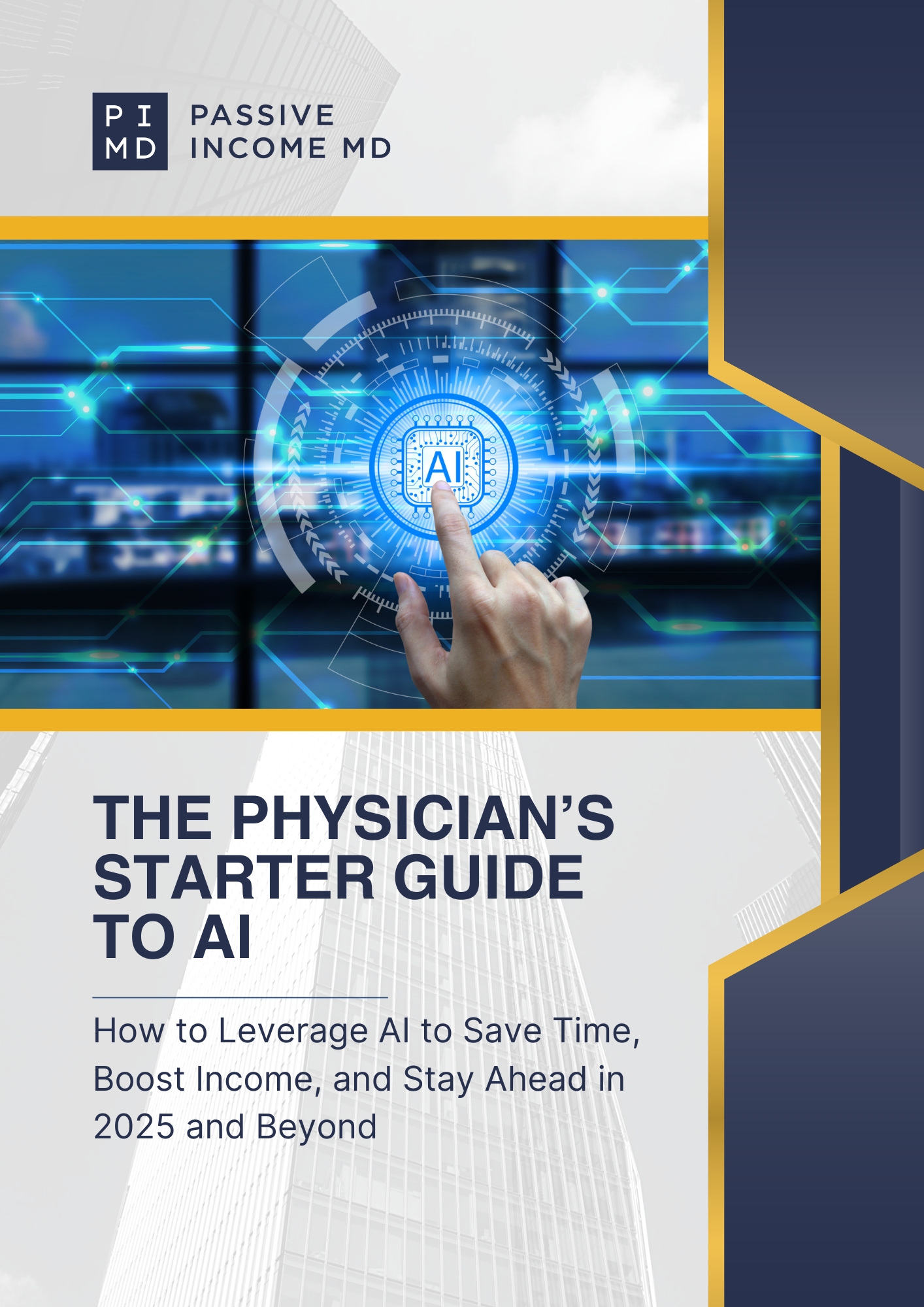If you’ve been feeling the shifts in healthcare lately, you’re not alone. Things are changing rapidly, some for the worse, but definitely some for the better. And yes, one of the biggest drivers is artificial intelligence. From how we chart and document patient visits to how we invest and manage our time, AI is already here and it’s only gaining momentum.
I’m fortunate that I’m in a situation where I get to speak to a ton of physicians both through our virtual and live events. I’ve had conversations with a lot of physicians recently who feel overwhelmed, burned out, or just stuck. I get it. I’ve been there too. But I’ve also seen firsthand how leveraging technology, especially AI, can help us regain time, create new opportunities, and build more freedom into our lives.
So what does it mean to be an AI-literate physician? It’s not about learning to code or becoming a data scientist. It’s about understanding how AI tools work, how they can support your goals, and how to use them strategically to stay ahead. Let’s talk about why this matters more now than ever.
The AI Revolution in Medicine
Artificial intelligence is already transforming the way we practice medicine. In clinical settings, AI is helping radiologists interpret images, supporting primary care doctors with diagnostic tools, and even assisting in surgical planning. Tools like Nuance DAX are reducing documentation time, allowing us to focus more on patient care and less on staring at a screen.
In the business side of medicine, AI is simplifying practice management by automating billing, scheduling, and patient follow-ups. It’s also helping streamline communication with patients through intelligent chat systems and triage tools.
Even beyond our medical work, AI is showing up in our financial lives. There are platforms that can help you analyze real estate markets and do better due diligence, optimize your investment portfolios, and keep you informed of market shifts, all while saving you time.
And the biggest one for me, let’s not forget how much AI can help in managing day-to-day life. Whether it’s planning a vacation, organizing your to-do list, or helping you complete all the crazy tasks that are on your checklist, AI is giving all of us back valuable hours that used to be considered busywork for us.
What It Means to Be AI-Literate
When I say “AI-literate,” I don’t mean you need to know how to build algorithms or write code. Yes we’re all intelligent and capable of learning this stuff, but how deep do we need to actually go? Being AI-literate simply means you understand what AI tools can do, what they can’t do, and how to incorporate them into your personal and professional workflow.
It’s similar to how we use calculators or smartphones. You don’t need to know how they work in every detail, you just need to know how to use them effectively. And trust me, there are plenty of tools out there that are simple and intuitive.
Some examples? ChatGPT, Claude, Perplexity, and Gemini. These tools can help you draft emails, organize business ideas, automate repetitive tasks, and even brainstorm investment strategies. They’re like personal assistants that never sleep.
Why AI-Literate Physicians Have the Edge
So why should you care? Because AI-literate physicians are going to be the ones who lead, not follow, in this next chapter of medicine.
First, there’s time leverage. AI helps you reclaim hours from documentation, email, and admin work. That alone can reduce burnout and bring more balance to your life.
Second, AI opens doors to income diversification. I know doctors using AI to create online courses, write newsletters, and analyze real estate deals more efficiently. These are real side income streams that wouldn’t have been possible (or as scalable) just a few years ago.
Third, it gives you career control. When you understand emerging technologies, you position yourself as someone who can lead innovation, not be replaced by it. You also stay relevant especially as patients increasingly expect more tech-savvy care.
First Steps to AI-Literacy
Getting started doesn’t have to be overwhelming. Here are a few things you can do right now:
- Pick one AI tool to try this week. I recommend ChatGPT, Notion AI, Claude, Perplexity, or Google Gemini. These are user-friendly and powerful.
- Follow one resource or newsletter focused on AI in medicine or business. That might be the Passive Income MD newsletter.
- Join a community. Our Passive Income Docs Facebook group or Leverage & Growth Accelerator are full of physicians exploring how to use tools like AI to create more freedom.
Choose one task you do regularly—email, note-taking, research—and try automating or streamlining it with AI.

Subscribe to receive the 7 Steps you can follow to achieve Financial Freedom
If financial freedom is your goal, there’s no better time to get started than right now.
Unlock actionable steps that you can take every day to fine-tune your goals, discover your interests, and avoid costly mistakes on your financial freedom journey.
Last Thoughts
AI isn’t here to replace us. It’s here to support us and physicians who learn how to harness it will be the ones who thrive.
If you’ve ever felt stuck or burned out, I want to encourage you: small steps lead to big change. Becoming AI-literate is one of the smartest investments you can make in your career, your business, and your freedom.
If you want to go deeper, check out our downloadable guide: The Physician’s Starter Guide to AI. And if you haven’t already, give our latest podcast episode a listen. I break all this down and share even more about how I’m using AI personally and professionally.
We’re just getting started and I hope you’ll take this step with me.
If you’re interested in more, subscribe to our newsletter for more content that will help you in and out of medicine. As always, make it happen!

Click Here to Download The Physician’s Starter Guide to AI
Peter Kim, MD is the founder of Passive Income MD, the creator of Passive Real Estate Academy, and offers weekly education through his Monday podcast, the Passive Income MD Podcast. Join our community at the Passive Income Doc Facebook Group.






